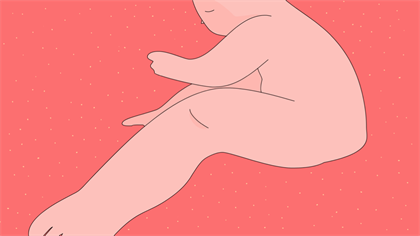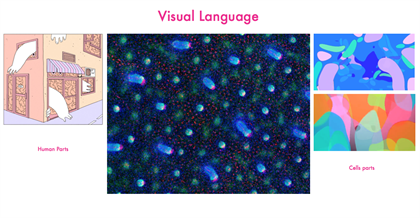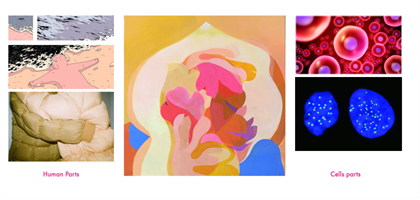Journey: The never-ending story of the Stem Cell
This collaboration created an educational animated video exploring stem cells, what they are, how they function and why they are so important.
Stem cells retain an immature, ‘pluripotent’ state, meaning they are uniquely able to divide into other specialised cell types, such as neurons in the brain or immune cells in the blood, whilst also creating pluripotent copies of themselves to replenish the body’s supply. Many signals control these processes.
Marcus Dawson's, Department of of Craniofacial Development & Stem Cell Biology, current research focuses on how mechanical forces, such as the bending and stretching of growing tissues, influences stem cell differentiation within the embryo. This ability to proliferate and diversify is fundamental for creating the complex myriad of cells inside our bodies.
 Stem cells are often misrepresented in the media and controversy still surrounds their public perception. Yet they hold great potential to replace lost or malfunctioning cells in diseases like cancer, stroke and diabetes. This project draws upon Marcus Dawson’s research at King's to create an animated video to enhance wider understanding of stem cell biology, and illustrate the importance of how supporting research contributes towards treating debilitating diseases.
Stem cells are often misrepresented in the media and controversy still surrounds their public perception. Yet they hold great potential to replace lost or malfunctioning cells in diseases like cancer, stroke and diabetes. This project draws upon Marcus Dawson’s research at King's to create an animated video to enhance wider understanding of stem cell biology, and illustrate the importance of how supporting research contributes towards treating debilitating diseases.

The educational animated video explains how stem cells give rise to all specialised cell types of the human body, such as heart or muscle, and how in special circumstances some of these specialised cells can in turn give rise to more stem cells. The video illustrates the journey of the first stem cell from conception, through development of the embryo and formation of adult tissues and organs, to the discovery of induced pluripotent stem cells (which are adult cells that can be transformed into stem cells in the laboratory) and continuation of the life cycle through reproduction.


This project is a collaboration between King's College London's Department of Craniofacial Development & Stem Cell Biology, Sivan Kidron, Rob Szeliga, Fraya Thomsen and Dafna Awadish. It is supported by university's Culture team as part of the Early Career Researchers scheme.